mThank you to Floral Garage for This Collaboration That Showcases What It's Like to Live in Singapore with Invisible Illness
Chesna from Floral Garage approached me a couple weeks back for a collaboration. We had a floral workshop planned for raising awareness on chronic conditions, but perhaps the timing wasn't right and we didn't have enough participants. So they kindly sponsored four of their best-selling bouquets instead, to a few of the interviewees below. Thank you Floral Garage for your generosity! I'm sure you put a smile on the recipients' faces despite any pain they may have had that day.
*Disclaimer: This article is meant for educational purposes, and is based on my personal experiences as a patient. I am not a doctor, and nothing in this article should be substituted for medical advice. Please consult your own doctor before changing or adding any new treatment protocols. This post may also contain affiliate links. It will cost you nothing to click on them. I will get a small referral fee from purchases you make, which helps with the maintenance of this blog. Read our Privacy Policy page for more information. Thank you!
Pin to Your Chronic Illness, Travel & Singapore Boards:
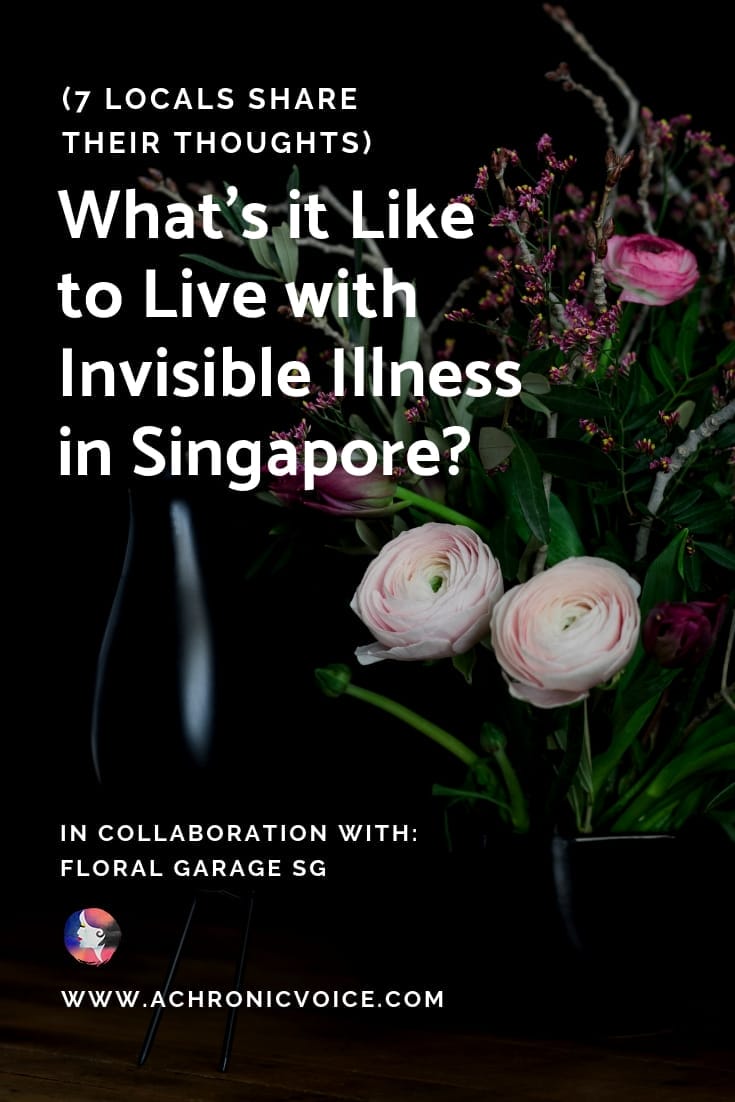
A Brief Introduction About the Interviewees
As for the people interviewed in this article, they are all Singaporeans living with various chronic illnesses and autoimmune disorders. I actually became acquainted with one of them, Brenda, as we were trapped in the same hospital ward 😉
As you will see, they come from varying age groups, backgrounds and careers, which goes to show that chronic illness can affect anyone, sadly. I hope that this short discussion with these seven Singaporeans will help to make the invisibility of these conditions a little more prominent within society, and that you learn something new today. At the very least, I hope that it instills some empathy for those around you, because you never know who may be hurting.
(Anything in the italic brackets below are additional comments from me.)

What Chronic Illnesses or Autoimmune Disorders do You Have?
Nicole 1: Hashimoto Thyroiditis
Nicole 2: Rheumatoid Arthritis
Katherine: Eczema
Sherry: Vasculitis
Masyitah: Sjögren’s Syndrome. Along with Sjögren’s is tinnitus.
Brenda: Crohn's Disease
Sheryl:
- Antiphospholipid Syndrome
- Lupus (SLE)
- Sjögren's Syndrome
- PSVT (a heart rhythm disorder)
- Mitral valve prolapse & repair
- Epilepsy
- Clinical depression and anxiety
- Update as of 2025...more diagnoses, namely:
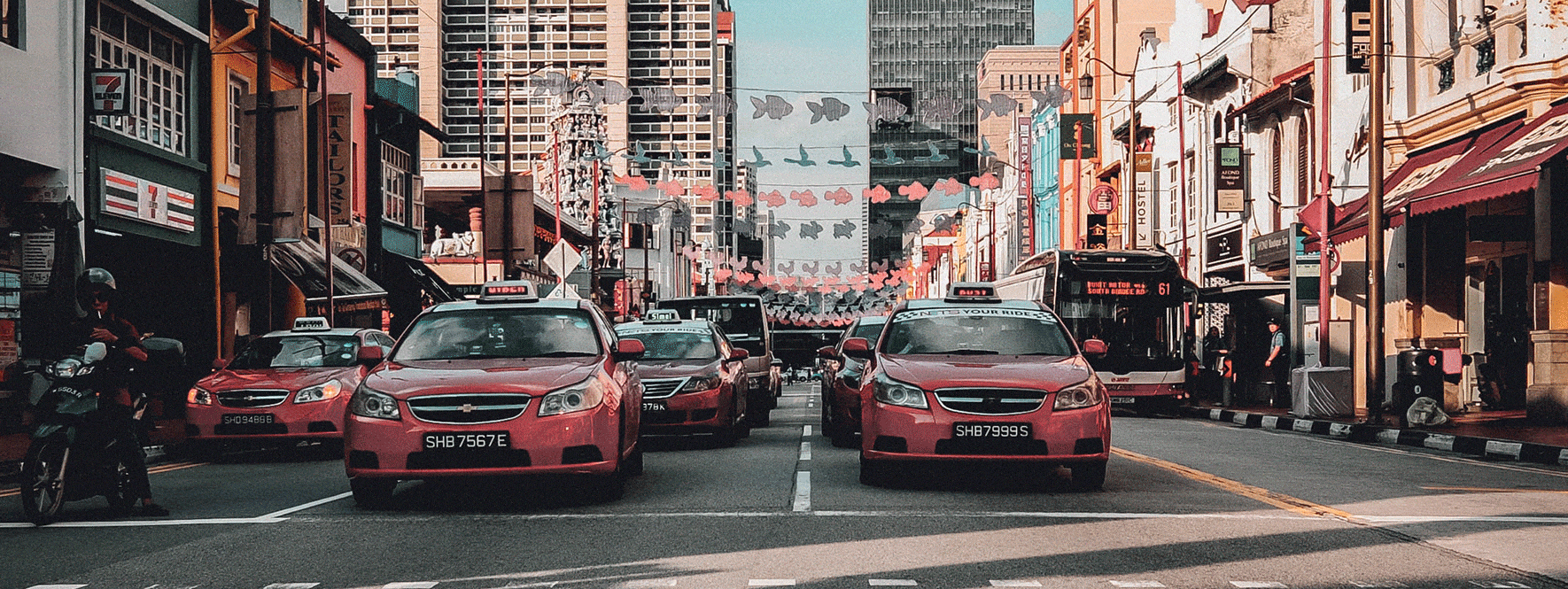
What's a “Day in the Life” Like for You with Chronic Illness?
Nicole 1: It used to be about not functioning properly. Brain fog, forgetfulness, no energy, fatigue were the main issues. Three years later I also started having constant pain in my finger joints. No help from doctors. People didn’t/don’t understand as on the surface you look fine.
Nicole 2: I wake up in pain, which subsides slightly but it never really goes away. Something different hurts every day and you can't really prepare for that. Sometimes the simplest of tasks becomes difficult, like getting dressed or just sitting down.
Katherine: It has become my happy habit to oil and moisturise my skin 24/7.
Sherry: Waking up and not knowing the amount of energy I have for that day. It is sometimes hard to plan ahead, as I don't know if the activities that I am going to do are 'too much' for me. Or sometimes a flare may just occur, and I have to cancel pre-arranged plans, which is something that I don't like to do. My energy level will deteriorate quickly, and my feet will be painful doing typical activities, such as shopping for electrical appliances.
Masyitah: It changes on a daily basis. Although the demands don't change, my response towards them has to. I have to be conscious of the load I do for the day. I am mostly home-bound and semi/flexi working, so naturally all duties of home demands are on me. I have to balance all this including work, fatigue, pain, brain fog, dryness, etc just to be sure I can function the next day as people depend on me.
I am slowly realising that I am losing muscle strength. My body frame lately is smaller than it used to be. I’m not sure, perhaps the lower dose of prednisone (steroids) is one cause. I am still losing hair due to meds or the disease itself (denied by rheumy). Self care is hard to do. But there hasn't been a day or moment that I do not think about my illness.
With all the demands, I get anxiety attacks. Initially it was bad, I would be in bed for most of the day. Nowadays I tell myself I have had it worst, the fear is only bigger in my head. I had trouble sleeping. I still do at times but it is getting better.
Fatigue is one that is a killer. The meds give me fatigue too. So somedays, with all the demands, I can’t even move an inch. The quilt cover would feel heavy and painful to carry. Or I would feel extremely cold on the extremities of my body, I would be layering my attire whilst everyone else would be sweating. There are times when I have terrible pain or swelling out of the blue (of course with autoimmune - nothing is out of the blue). This limits my movement.
Brenda: Precious moments with family and friends.
Sheryl: Waking up always takes some time for me, as I'm achy and nauseous until my steroids and coffee kick in. At my worst, it took me two hours just to shift my legs out of bed and start getting dressed. This was the reason I had to cab to work back when I was working full-time.
I also have clinical depression and anxiety, and currently what my psychiatrist calls a mixed state. I find the anxiety harder to cope with than the depression, although there are more straightforward medications to managing them for me. I also worry because I get panic attacks right before a seizure as well, so it can be hard to differentiate them. Maybe they're all related; I personally think that they all stem from an autoimmune source, perhaps from the Lupus since that can affect any and all parts of the body.
On a 'good day', I do some work from home with my birds flying (and pooping!) around me with some music on. Work these days comprise of either building websites, writing sponsored posts, or simply trying to take my blog up a notch. The todos for the blog are endless, but I do enjoy it!

What's Something You Wish You Had More Assistance with?
Nicole 1: Understanding what else apart from medication can help with the illness, such as lifestyle, diet etc.
Nicole 2: Cost of medication that actually works.
Katherine: Prompt medical advice when my skin becomes too dry and cracked.
Sherry: I wish I had more assistance during flares, to reduce even the smallest amount needed to walk, such as having people buy meals for me when I'm at work. I just use the various food delivery services when I'm at home.
Masyitah: More answers and direction as to where my disease is going. Yes the blood and urine tests monitor inflammation levels, but what about all those 'weird' things that pop up out of nowhere such as a swelling vein, or hives.
In public places, I would like an identification which states that I am ill; that I need the 'those who need it more' seats on the buses and trains. Instead of faces that imply: please go ask someone else instead of me. That I have no strength to 'hold onto the rail' when the bus moves fast, jerks, or stops all of a sudden.
Brenda: Cheaper prices for stoma users, it's so expensive for one bag. I can't imagine if the patient is an elderly person without a job. (From what I understand, the average cost for a month's worth of TPN is $8,000.)
Sheryl: Financial aid/subsidies from the government for people who go to the doctors' on a regular basis. Now the classification for 'chronic diseases' isn't broad enough (Lupus is as chronic as you can get, but isn't even listed), and the subsidies are miserable. My most expensive medication hardly gets any coverage, and can cost thousands of dollars per month. I wish that there were no division of drug classes. It also doesn't make sense especially if the patient is unable to work.
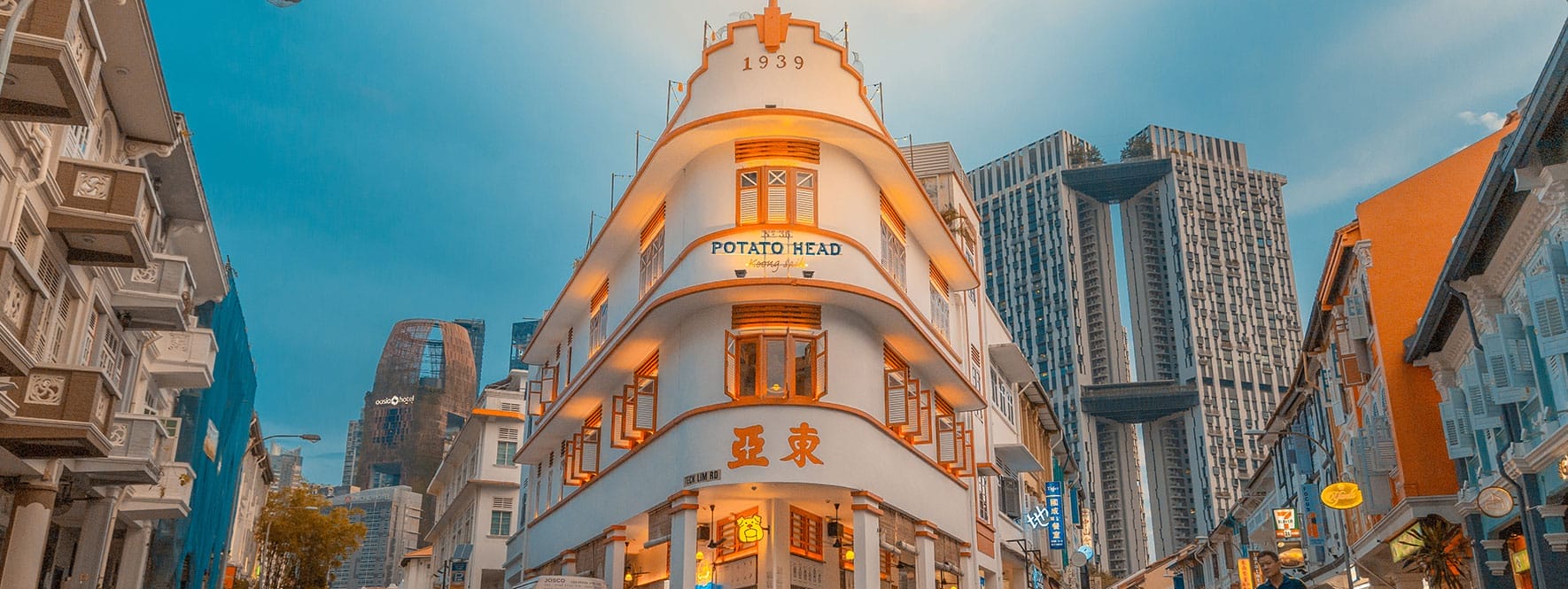
What's Something That Helps You to Cope with the Pain or Discomfort?
Nicole 1: Diet! Avoiding gluten at all costs as it causes me pain, and makes the autoimmune attacks worse. The rest of the diet (AIP) and changes I have implemented are helping me to regain my life.
Nicole 2: Yoga.
Katherine: Praying.
Sherry: There's nothing much I can do to cope with the pain or discomfort. Sometimes doing various crafts can help to distract me from the pain. However, to prevent the pain and discomfort, I use private transport quite a lot to reduce the amount of time spent on my feet.
Masyitah: Hopeful thinking, practice of positivity, prayers. Massages, rubs, quiet time - my down time is the most important for me. It is my practice of calmness.
Brenda: Watching funny videos or sleep.
Sheryl: Physical, emotional and moral support from my partner, parents, and birds. Writing. Music.

What's Your Biggest Wish for the Good of Singapore's Future?
Nicole 1: More awareness on autoimmune diseases, and open mindedness from the medical community towards alternative methods that may help people. Instead of relying on medications which might be more harmful than helpful in the long run.
Nicole 2: That there would be more affordable and effective help for people with chronic illnesses.
Katherine: Be brave to be kind.
Sherry: That everyone is more aware of autoimmune illnesses, that they are able to receive the support that they need, and know that they are not alone! More doctors who are knowledgeable on autoimmune illnesses so that patients do not have to be referred to various departments to get a diagnosis and proper treatment.
Masyitah: That autoimmune disorders are listed as chronic illnesses. That there are more forums talking about autoimmunity, and more help for people living with autoimmune diseases. (Only 20 chronic diseases are covered by the CDMP at present.)
Brenda: Have a charity group that helps people with financial problems, who need to live with stoma bags for life.
Sheryl: To be more gracious and empathetic within all facets of society - not just healthcare - whilst retaining our cultural roots.
Thank You to Our Contributors!
Nicole 2

A dog lover who loves to travel, and learn about history and culture.
Katherine

Thankful to live my life with gratitude.
Sherry

Founded Autoimmune Illness Support Group – Singapore on Meetup in 2013 and on Facebook in 2015. Runs a ground-up movement (GUM), Be Kind SG, that promotes volunteering with ‘invisible’ communities, such as children and youths with special needs, and adults and seniors with intellectual disabilities.
Masyitah

43 year old mother of two.
Brenda
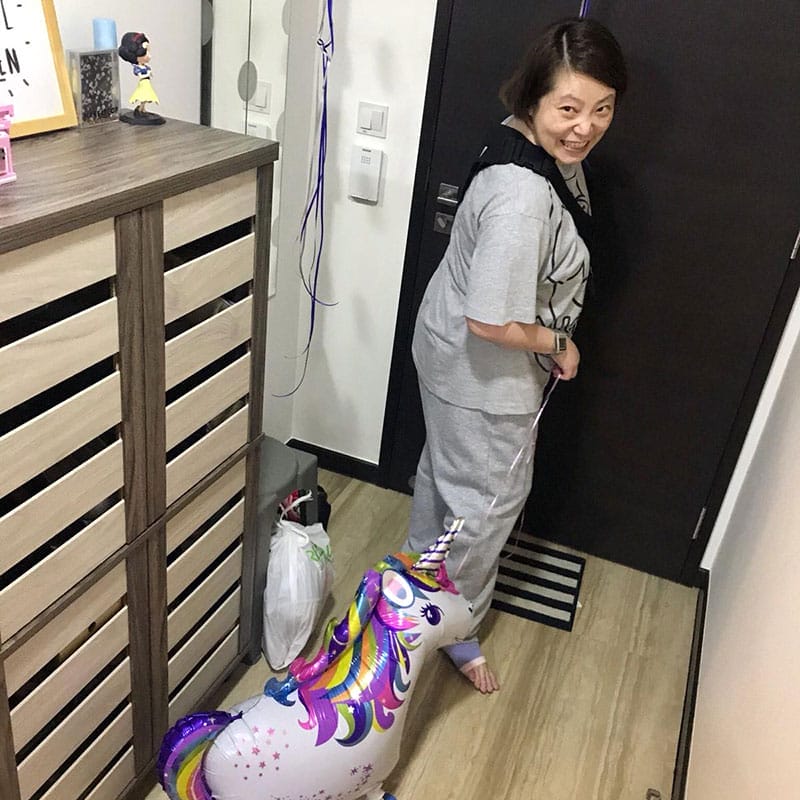
I’m a happy go lucky girl who has been diagnosed with Crohn’s disease for 18 years. I went through multiple surgeries and am now a survivor of my latest one, which left me with only 1.8m (5.9ft) of my small intestines. 🙂
Sheryl

The owner of this blog! Striving to raise awareness not only about chronic illnesses, but to foster empathy and kindness within all facets of society. Also runs a sister site, “Sick Lessons”, where people share the life lessons they’ve learned from being ill.
Pin to Your Chronic Illness, People & Singaporean Boards:
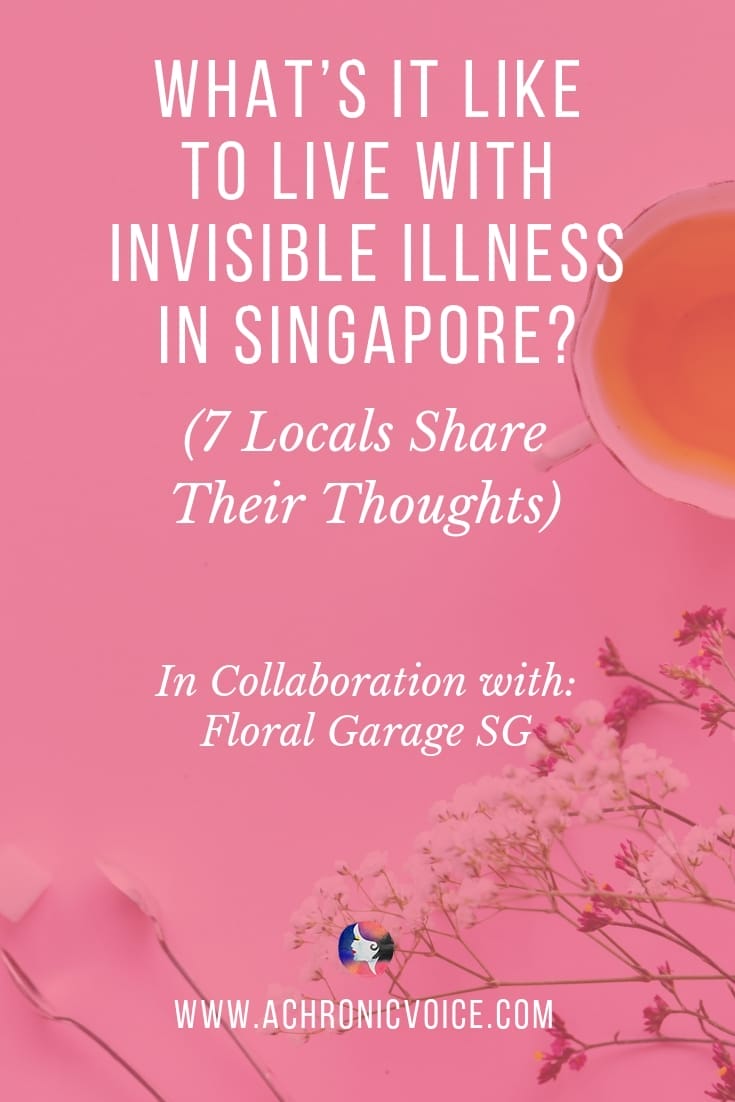

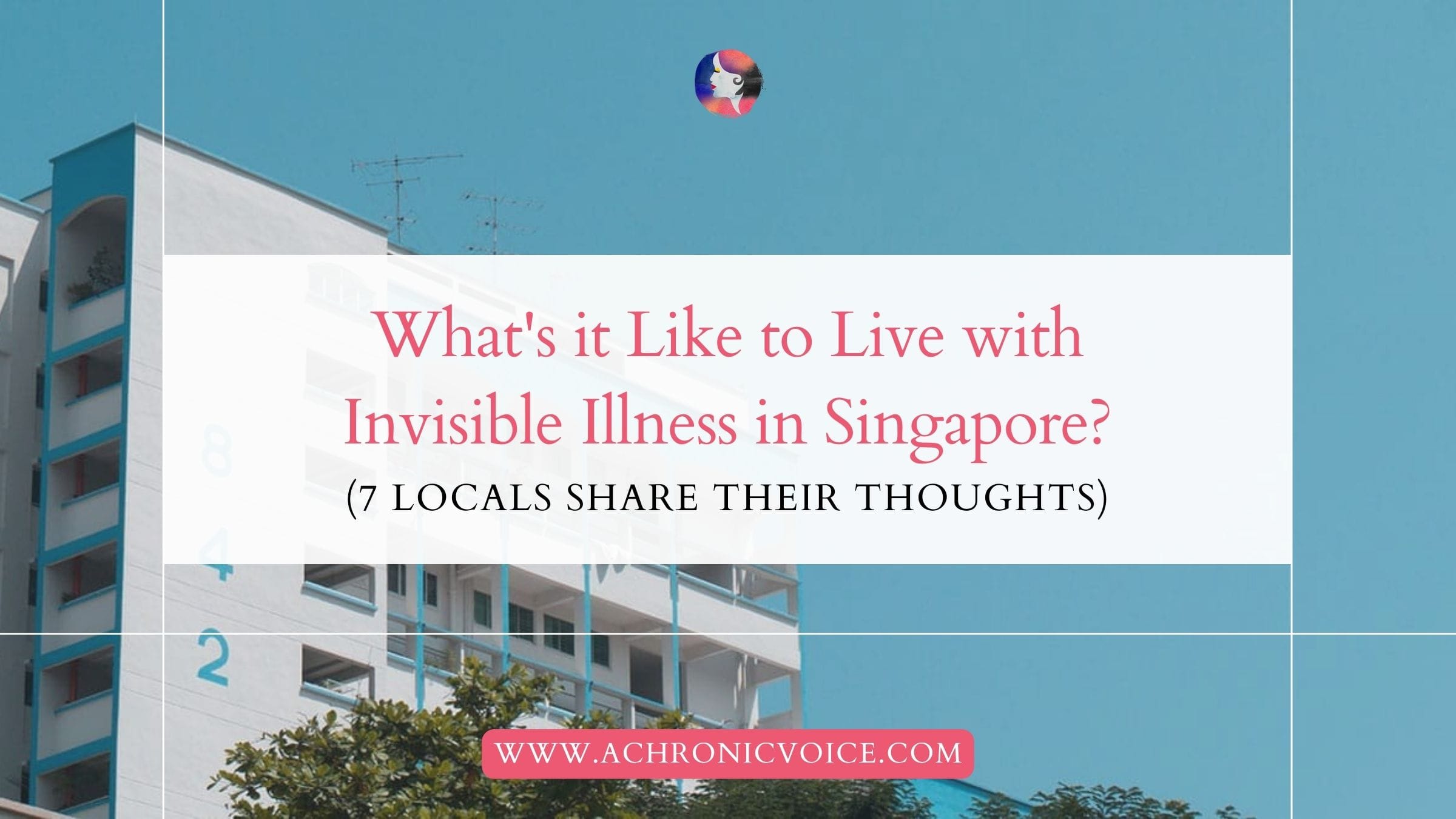
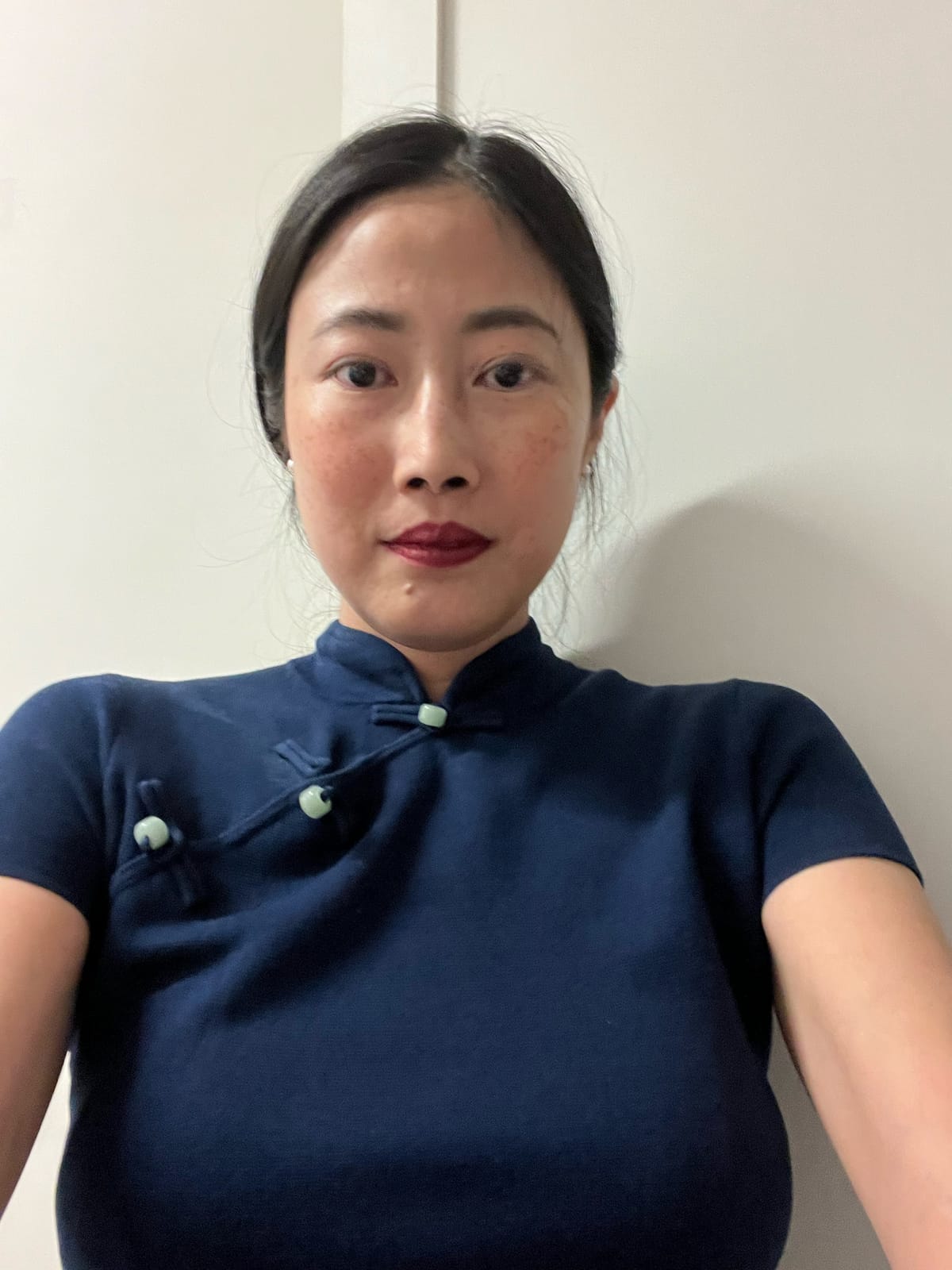
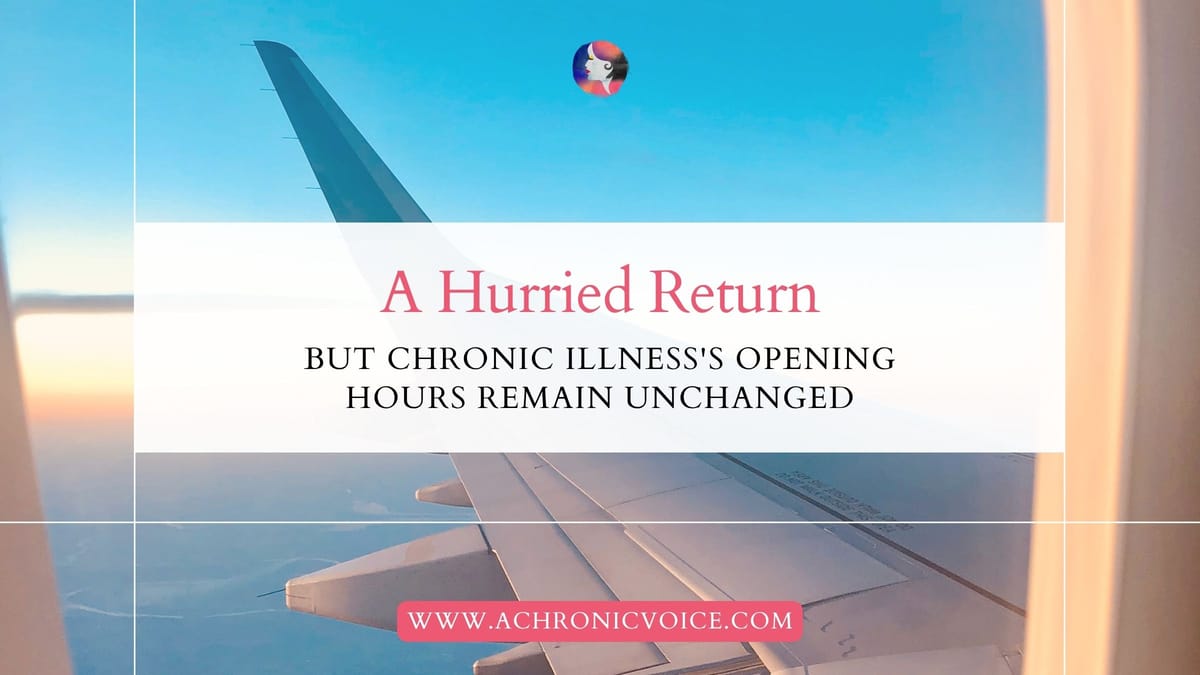
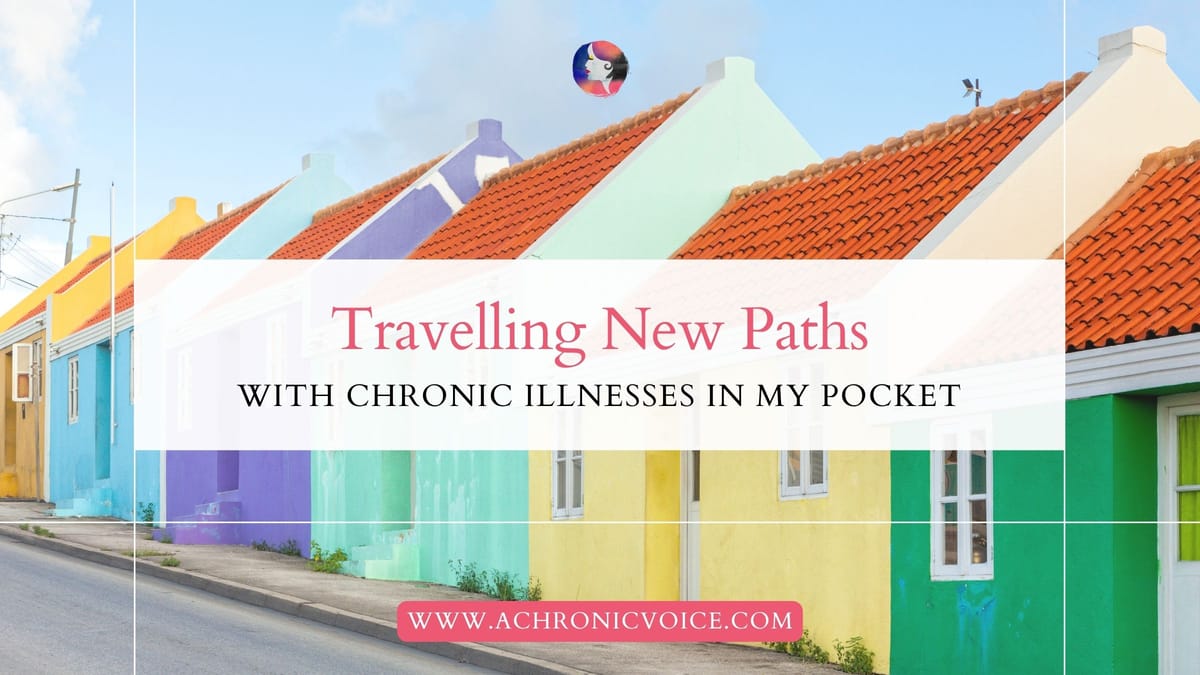

Comments Archives:
Comments imported from previous WordPress site.-
Alison Hayes
-
Katie Clark
Start a new conversation in the Member Comments below!Lovely share. It really does seem like disability-related struggles are very similar everywhere. I absolutely empathize with many of these comments and experiences. I’m in the semi-invisible category myself and with the migraines, I’m now dealing with the medication struggles as well.
Thanks so much for putting this together – it’s really nice to recognize just how universal these struggles are!
I think of Singapore as such an exotic, far away place. Yet, reading each of the responses makes me realize just how much we are the same all over the world. We live with so many of the same things. It’s so upsetting that there isn’t more help/financial support for those with chronic illness. I have applied for disability after working for 32 years. It is basically getting my retirement benefits 6 years early. I just can’t be dependable enough to work on any consistent basis. I would like to, but after 3 years, I have lost hope. However, the odds of me getting disability is pretty slim. I’ve been waiting to hear since October.